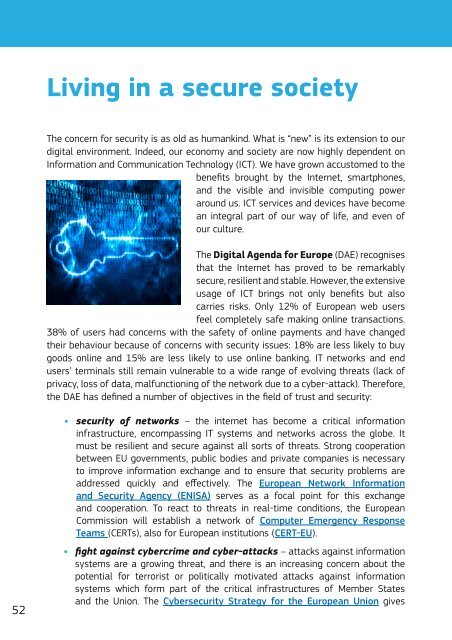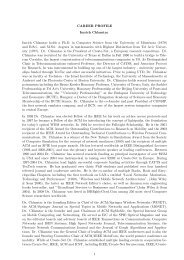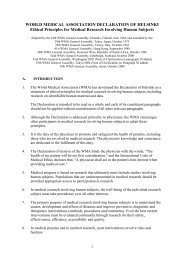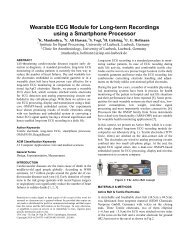ICT for Societal Challenges - European Commission - Europa
ICT for Societal Challenges - European Commission - Europa
ICT for Societal Challenges - European Commission - Europa
You also want an ePaper? Increase the reach of your titles
YUMPU automatically turns print PDFs into web optimized ePapers that Google loves.
Living in a secure society<br />
The concern <strong>for</strong> security is as old as humankind. What is “new” is its extension to our<br />
digital environment. Indeed, our economy and society are now highly dependent on<br />
In<strong>for</strong>mation and Communication Technology (<strong>ICT</strong>). We have grown accustomed to the<br />
benefits brought by the Internet, smartphones,<br />
and the visible and invisible computing power<br />
around us. <strong>ICT</strong> services and devices have become<br />
an integral part of our way of life, and even of<br />
our culture.<br />
The Digital Agenda <strong>for</strong> Europe (DAE) recognises<br />
that the Internet has proved to be remarkably<br />
secure, resilient and stable. However, the extensive<br />
usage of <strong>ICT</strong> brings not only benefits but also<br />
carries risks. Only 12% of <strong>European</strong> web users<br />
feel completely safe making online transactions.<br />
38% of users had concerns with the safety of online payments and have changed<br />
their behaviour because of concerns with security issues: 18% are less likely to buy<br />
goods online and 15% are less likely to use online banking. IT networks and end<br />
users’ terminals still remain vulnerable to a wide range of evolving threats (lack of<br />
privacy, loss of data, malfunctioning of the network due to a cyber-attack). There<strong>for</strong>e,<br />
the DAE has defined a number of objectives in the field of trust and security:<br />
52<br />
• security of networks – the internet has become a critical in<strong>for</strong>mation<br />
infrastructure, encompassing IT systems and networks across the globe. It<br />
must be resilient and secure against all sorts of threats. Strong cooperation<br />
between EU governments, public bodies and private companies is necessary<br />
to improve in<strong>for</strong>mation exchange and to ensure that security problems are<br />
addressed quickly and effectively. The <strong>European</strong> Network In<strong>for</strong>mation<br />
and Security Agency (ENISA) serves as a focal point <strong>for</strong> this exchange<br />
and cooperation. To react to threats in real-time conditions, the <strong>European</strong><br />
<strong>Commission</strong> will establish a network of Computer Emergency Response<br />
Teams (CERTs), also <strong>for</strong> <strong>European</strong> institutions (CERT-EU).<br />
• fight against cybercrime and cyber-attacks – attacks against in<strong>for</strong>mation<br />
systems are a growing threat, and there is an increasing concern about the<br />
potential <strong>for</strong> terrorist or politically motivated attacks against in<strong>for</strong>mation<br />
systems which <strong>for</strong>m part of the critical infrastructures of Member States<br />
and the Union. The Cybersecurity Strategy <strong>for</strong> the <strong>European</strong> Union gives






